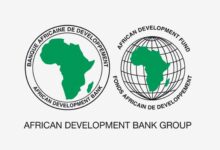ASUU Strike Ultimatum: A 14-Day Countdown That Could Shake Nigeria’s University System—and the Economy

Nigeria’s fragile higher education system has once again been thrown into uncertainty. The Academic Staff Union of Universities (ASUU) has handed the Federal Government a 14-day ultimatum to resolve long-standing grievances or risk a nationwide shutdown of public universities.
The ASUU strike threat comes at a time when Nigeria is seeking to reposition itself as an education hub under the Renewed Hope Agenda, with ambitions to drive innovation, skills development, and economic competitiveness. Yet, the recurring cycle of industrial disputes underscores the deep cracks in funding, governance, and labour relations within the education sector.
At stake is not just the academic calendar of millions of students, but also the broader economic and social stability of a nation where universities play a critical role in workforce development, innovation pipelines, and social mobility.
Background
At the end of its National Executive Council (NEC) meeting held at Yakubu Gowon University (formerly University of Abuja), ASUU President, Prof. Christopher Piwuna, confirmed that the union could no longer ignore government inaction on unresolved issues.
Key demands include:
- Renegotiation of the 2009 ASUU-FGN Agreement.
- Sustainable funding and revitalisation of public universities.
- Payment of outstanding 25–35% salary arrears.
- Resolution of promotion arrears spanning four years.
- Settlement of third-party deductions (cooperative dues, pensions, etc.).
- End to alleged victimisation of ASUU members at LASU, KSU, and FUTO.
According to ASUU, months of media engagements, campus rallies, and direct appeals have yielded little. Now, the warning is clear: if nothing changes within 14 days, a two-week warning strike will follow, escalating into an indefinite strike if government fails to act.
The Key Issues at Stake
1. Chronic Underfunding of Universities
Nigeria allocates less than 8% of its budget to education—far below UNESCO’s 15–20% benchmark. This has left universities struggling with decayed infrastructure, outdated research labs, and overcrowded lecture halls.
2. Wage and Welfare Crisis
Lecturers continue to agitate for competitive remuneration that reflects their professional and global value. Delays in salary arrears and unresolved promotion cases have deepened discontent.
3. Labour Rights and Governance
Allegations of victimisation of union leaders at state institutions highlight governance and autonomy concerns, with potential long-term effects on academic freedom.
4. Economic Cost of Strikes
Every round of ASUU strike has ripple effects:
- Students spend more years in school, delaying graduation and labour market entry.
- Parents bear additional financial burdens.
- Nigeria’s talent pipeline weakens, with many opting for foreign universities—fueling capital flight via education tourism.
Sector-by-Sector Analysis
Education Sector
A prolonged strike could paralyse Nigeria’s 91 public universities, which educate over 1.5 million students. Private universities may benefit from increased enrolment, but affordability limits this as an option for most Nigerian families.
Labour and Workforce Development
The stoppage risks widening Nigeria’s skills gap. As industries demand more STEM and digital skills, prolonged academic disruptions undermine national competitiveness.
Economy at Large
- Households: More financial strain from prolonged studies.
- Labour Market: Employers face delays in recruiting fresh graduates.
- Foreign Exchange: More parents may send children abroad, worsening FX pressure.
Political and Governance Sector
The Federal Government faces reputational risks—appearing insensitive to education challenges while pushing reforms in other sectors. Opposition parties could weaponise the strike in the lead-up to 2027 elections.
Stakeholder Implications
- Federal Government: Faces a credibility test on whether it values education as a driver of national growth.
- Students & Parents: Bear the brunt of stalled academic calendars and rising costs.
- Investors & Employers: Delayed workforce pipeline; uncertainty for education-linked industries (publishing, ICT, campus services).
- International Partners: Potential reputational damage to Nigeria’s higher education system, undermining global collaboration and student exchanges.
Economic Implications
- GDP Drag from Education Disruptions
Education contributes over 2% to Nigeria’s GDP. Prolonged shutdowns reduce productivity in knowledge industries. - Capital Flight
The last ASUU strike in 2022 saw a 47% spike in Nigerians applying for foreign universities. Another strike could accelerate education migration, costing Nigeria billions in FX. - Youth Unemployment & Social Tensions
Prolonged idleness among undergraduates risks worsening insecurity and youth restiveness.
BRANDECONOMY Takeaways for Decision-Makers
- Education as a Strategic Asset
Nigeria cannot industrialise or digitise without universities functioning as innovation hubs. Chronic strikes weaken long-term competitiveness. - Policy Consistency Matters
Ad-hoc interventions will not work. The Federal Government must commit to a sustainable funding model—perhaps via Education Bonds or a National Tertiary Education Fund Expansion. - Stakeholder Dialogue Is Urgent
The conciliation meeting between ASUU, Ministry of Labour, and Finance Ministry must prioritise transparency, timelines, and actionable deliverables. - Private Sector Role
Corporate Nigeria should step up investments in research partnerships, endowments, and skills programmes.
Student-Centric Outcomes
Any negotiation must prioritise academic calendar stability. Students should never again spend 8 years on a 4-year degree.












